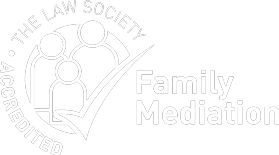Family Mediation
Clients who want to divorce often tell me it’s something they’ve been putting off. They have dreaded the prospect of months of messy and hostile squabbles with their ex. Of having a judge unpick the details of their family life. Having to give evidence. And having to sit tight for many months while the court process runs its course.
Then we talk about mediation.
A type of alternative dispute resolution, mediation is an alternative to going through the court system (in fact, divorcing couples must usually show that they have first considered it). It’s generally a quicker, less expensive and – in most cases – a more constructive way of parties agreeing the basis on which they’ll move on with their lives.
So, what does mediation involve?
Mediation is a series of meetings between you, your former partner and a qualified mediator (often, but not always, a Family lawyer). The mediator will get to know you both and understand your individual and joint circumstances. He or she will guide you through the decisions that need to be made about your finances, your property, your other assets, your children. And, through either face-to-face discussions with your former partner or via individual meetings with the mediator, you’ll work towards a resolution that draws a line under your relationship.
One of the reasons it can work so well is that it is intentionally less formal, and more conducive to getting the parties talking, than a court process could ever be. I have stood on the sidelines of a number of mediations (solicitors are not usually directly involved, but we’re always on the end of a phone line, ready to advise on anything our client isn’t sure about) in which the parties were initially extremely sceptical about the chance of progress being made, let alone a successful outcome being achieved. But the great thing about mediation is that it manages it; a smidgen of willingness to cooperate really can yield very positive results.
As well as enabling people to reach their own agreement, on their terms, it’s also by far the most cost-effective way of resolving disputes. And the openness and transparency of the mediation process allows former partners to begin building a positive post-separation relationship – one where they can work together, despite their differences (something that is especially important when children are involved).
Of course, there will be situations in which cooperation between former partners during and after the divorce process will simply be unattainable – where the relationship has been so badly damaged by domestic violence, for example. Mediation won’t suit every break-up, nor is it designed to force couples to work together; it’s consensual, not obligatory. And, being something that parties agree to enter into together, it’s a process that really can help build bridges. It gets people talking, which can be hugely beneficial where the relationship must continue for the benefit of the couple’s children.
The point about getting a conversation going is a really important one. Clients often tell us that they haven’t spoken directly to their ex for many months. They have communicated where necessary (and not always in the most pleasant of tones) via text, email, Whatsapp, Facebook or through messages passed on by friends or family members. That’s become the norm for them, and they don’t relish the monumental step of sitting around a table with their former partner and actually speaking to them. It’s entirely understandable. But mediation is a great way of breaking that habit; of creating a safe environment in which people can communicate openly and – as is often the case, particularly as the mediation progresses – rationally and constructively.
It’s an environment in which decisions can be made, jointly. It’s where former partners can, with the mediator’s help and guidance, reach agreement between themselves about the division of assets and the best arrangements for their children. It’s not about having terms or conditions imposed. It really is a process that encourages the parties to protect their own interests while also seeing things from the other person’s perspective. And, as with every other aspect of Family law, where there are children involved then those children’s best interests will be prioritised. That’s something that all mediators will be at pains to ensure.
But some people still have a preconception that mediation is a ‘weaker’ alternative to the court process. They think that things may not be dealt with as fully as they would be if a judge were hearing the issues. They also worry that, without their Family law solicitor there to represent them, they’ll be railroaded into an unfair settlement.
Fear not! Mediators are extremely thorough, and (just as a judge would be) are adept at understanding the issues and keeping discussions on track. Although they are not there to advise the parties on their rights or entitlements, they will make sure that you have your voice heard and that you do not unwittingly agree to something that is manifestly unfair or wrong. But the biggest safety net will be your Family solicitor; consult with him or her on the deal you’re proposing to strike. And ask them to get the final deal formalised as a court order, so that it’s as binding as it would be had it been reached via the courts.
I’m a huge proponent of mediation. It has served as a great route to settlement for many of my clients, and its longer-term benefits have stood divorced couples in good stead for the future. It’s also helped cohabitee couples and civil partners; it’s not just about marriage.
So the natural progression for me, as a Family solicitor and mediation fan, is to become a mediator. I’m delighted to report that my training has begun and that I’m due to qualify in December 2019. It’s a hugely exciting development for me, professionally and personally, and I very much look forward to working with couples to help improve their experience of divorce.
To speak to me about mediation, or any other Family Law issue, call me on 020 3811 2894. Or email me: [email protected]










